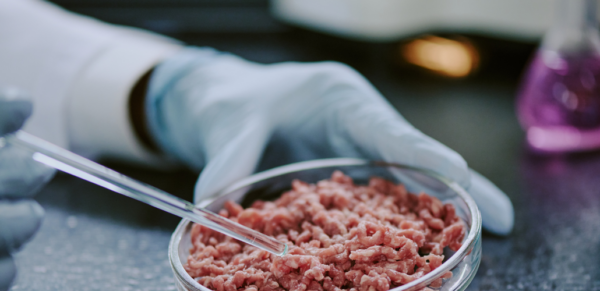The great universal school meals experiment

The pandemic is a crisis, but from it may come an opportunity for the universal school meals campaign.
A few years ago, Clean Yield decided to align its philanthropic giving to try to move the needle on one issue: We chose to use our funding to seed a campaign to make Vermont the first state in the country to feed all children, regardless of need, breakfast and lunch at school. We felt that universal school meals represented a systems change that would increase equity in Vermont while also strengthening our education and local food systems. Earlier this year, our partners at Hunger Free Vermont introduced a universal school meals bill in Montpelier. The pandemic paused the bill’s progress, and we wondered if the campaign would be on hold indefinitely. Astonishingly, while our bill was sidelined, universal school meals took a leap forward on the national stage. Here’s what happened:
Back in March when schools were still considering if they should close (right around the time Tiger King was the top Netflix series and we were stocking up on flour and yeast), school meals became a hot topic. Many children rely on school for their food. If we closed schools, how would we ensure that these children continued to get access to food? Congress heard these concerns and, in its relief bills passed in the spring, enabled the USDA to waive eligibility requirements for school meals programs. Any child, regardless of need, could have school lunch free of charge.
This effectively made school meals universal in the spring and summer. And families participated! For some, their income had changed, but for others, it was one way to relieve the stresses associated with remote learning and being cooped up in new and uncomfortable ways. Universal availability made using the school meals program comfortable for everyone to use, while it also helped those programs financially. If there were ever a doubt that school meals are a fundamental component of education and an essential tool for learning, the COVID-19 pandemic has erased it.
Of course, this universal school meals experiment was not perfect. There were gaps in the funding provided by the USDA, including not fully covering costs for things like ingredients packaging, labor, and transportation that increased due to COVID-19. Here in Vermont, state lawmakers appropriated federal coronavirus relief Cares Act funding to help cover some of these additional costs. Nonetheless, with a mix of federal and state funding and support, universal school meals was launched! Schools across the state started providing meals to all families who wanted them. They set up meal pickup sites, and many even used the school buses to deliver meals right to children at their homes. Many schools were delivering more meals than they would during a normal school year, as families jumped at the opportunity to get some help ensuring their children could eat nutritious food while learning from home. Many schools and other organizations continued to provide meals during summer vacation.
While there is a question about whether school meals will be covered in the pandemic relief packages going forward, the key point is that we tried universal school meals and it worked. We fed kids, any kids who wanted food, and in doing so, helped meet kids’ most basic needs, helped keep them ready to learn, and relieved one stressor from families.
Our friends at Hunger Free Vermont have continued to press for hunger relief packages going forward with Vermont lawmakers. While hunger does not sit with one legislative committee – Agriculture, Education, Transportation, and Economic Development all take an interest – the Hunger Free team is hearing support for universal school meals across committees.
At this point in the universal school meals campaign, the key pieces are in place. We have a bill, we have the cost analysis, we have detailed materials, and we have a real-life experiment to draw from. Now all we need is a strong coalition of lawmakers and a new session. On November 4, Hunger Free Vermont, with continued support from Clean Yield, will hit the ground running with the goal of turning this universal school meals experiment into the status quo.
More News & Insights
Upcoming Speaker Series: The Role of Private Capital in Building Affordable Housing for Resilient Communities
We invite you to join us on March 31 at 3 p.m. ET to participate in this critical conversation on affordable housing.
Proxy Voting: A Critical Tool for Individuals and Investors to Influence Corporate Behavior
Learn how proxy voting gives equity (stock) investors a powerful tool to pressure corporations to act more responsibly.
A New Kind of Meat
Through Clean Yield’s U.S. Sustainable Investment Forum membership, Liz Levy attended a meeting to gain insights on the emerging cultivated meat industry.


